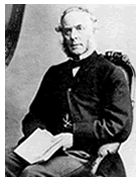A Quote by Barbara Grizzuti Harrison
Related Quotes
My favorite thing is landscaping. I love landscaping. And so what I'll do is, mostly I put language into search engines, and if I want to look, like, at tulip gardens, or, like, Georgian gardens, i love English gardens, how they're laid out. Japanese gardens, Asian gardens. So, I'm kind of a frustrated landscaper.
As for the meaning of gardens, particular gardens may have, of course, all sorts of different meanings - emotive, historical, emblematic, religious, commemorative, and so on. But I think that good gardens all signify or exemplify an important truth about the relationship of culture and nature - their inseparability.
Bad Gardens copy, good gardens create, great gardens transcend. What all great gardens have in common are their ability to pull the sensitive viewer out of him or herself and into the garden, so completely that the separate self-sense disappears entirely, and at least for a brief moment one is ushered into a nondual and timeless awareness. A great garden, in other words, is mystical no matter what its actual content.
The greatest change we need to make is from consumption to production, even if on a small scale, in our own gardens. If only 10% of us do this, there is enough for everyone. Hence the futility of revolutionaries who have no gardens, who depend on the very system they attack, and who produce words and bullets, not food and shelter.
I hear in the big city, girls dress up like sexy witches and sexy vampires and sexy Easter bunnies, and go to parties where they do all sorts of scandalous things," Kami said. "Luckily you and me, we got to walk around our town looking at our neighbours' gardens and remarking 'My, that's a good-looking scarecrow' to each other. I guess this is why our natures are so beautiful and unspoilt.




































